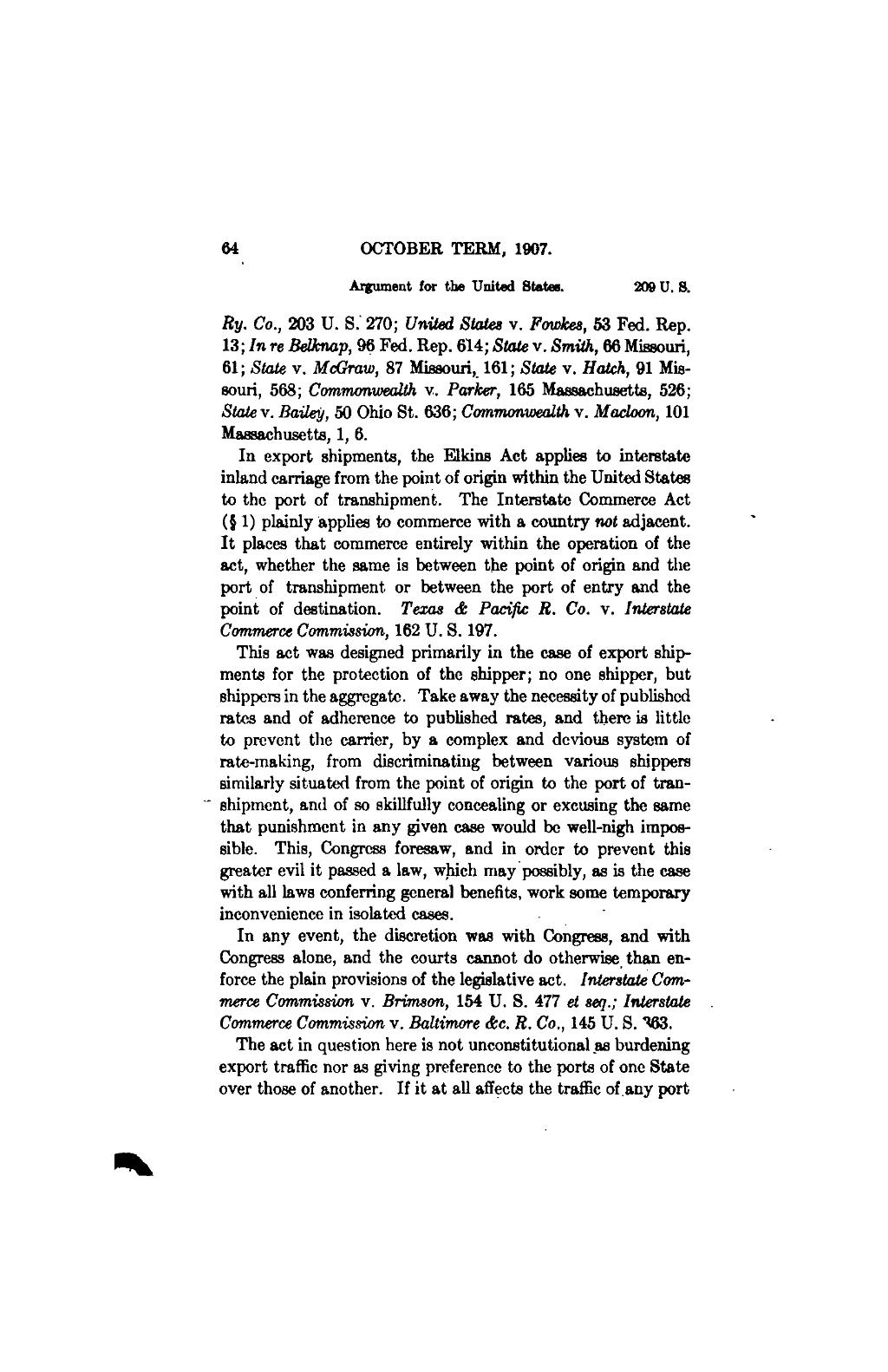OCTOBER TERM, 1907. Argument for the U?ited 8t?te?. 209 U.S. Ry. Co., 203 U.S.' 270; United $ta? v. Fowkes, 53 Fed. Rep. 13; In re Balknap, 96 Fed. Rep. 614; $tat? v. $m/th, 66 Missouri, 61; State v. McGraw, 87 Mi?ouri,. 161; $tat? v. Hatch, 91 Mis- souri, 568; Commonweo/th v. Parker, 165 Massach?ts, 526; Massachusetts, 1, 6. In export shipments, the Elkins Act applies to interstate inland carriage from the point of origin within the United States to the port of tmnshipment. The Interstate Commerce Act (� plainly applies to commerce with a ?ountry not adjacent. It places that commerce entirely within the operation of the �ct, whether the same is between the point of origin and the port.of transhipment or between the port of entry ?nd the point of destination. Texas & Pacific R. Co. v. lnterstat? Commerce Commission, 162 U.S. 197. This a?t was designed primarily in the case of export ship- ments for the protection of the shipper; no one shipper, but shippers in the aggregate. Take away the nece?ity of published rates and of a?therence to published rates, and there is little to prevent the carrier, by a complex and devious system of rate-making, from discriminating between various shippers similarly situated from the point of origin to the port of trim- shipment, and of so skillfully concealing or excusing the same that punishment in any given case would be well-nigh impos- sible. This, Congress foresaw, and in order to prevent this greater evil it passed a law, which may'po?ibly, as is the case with all laws conferring general benefits. work some temporary inconvenience in isolated caso?. In any event, the discretion was with congre?, and with Congress alone, and the courts cannot do otherwise than en- force the plain provisions of the legislative act. Inters tate Com- merce Commission v. Br/mson, 154 U.S. 477 et seq.; lnterstat? Commerce Com?niss/on v. Baltimore &�. R. Co., 145 U.S. ?3. The act in question here is not unconstitutional .? burdening export traffic nor as giving preference to the ports of one State over those of another. If it at all aff?cts the traffic of.?ny port
�
